Dozens of dead rabbits are littering fields in Elgin following an outbreak of myxomatosis.
Over the past week, the Scottish SPCA has received several calls about dead and sick rabbits in the town.
Concerned residents have reported seeing the bodies of rabbits in the fields by Elgin High School and the Wards.
Our photographer Jason Hedges walked along a field north of the high school where he counted at least 20 bodies near the main path alone.
He estimates there could be up to 100 bodies lying in the fields.
While walking there he spotted other rabbits still alive, but clearly suffering from the virus.
Warning: Some images may not be suitable for some readers.
The Scottish SPCA confirmed there has been an outbreak of myxomatosis in the town.
There have been no reports of it elsewhere so far. However, there could be smaller “pockets” of the disease in other areas.
Ian Futter, chief vet at the charity, spoke to the Press and Journal to explain:
- What myxomatosis is
- What you should do if you find any sick or dead rabbits in Elgin
- If myxomatosis is contagious — and how you can protect your pets in Elgin
What is myxomatosis?
Simply put, myxomatosis is a severe virus in rabbits and is usually always fatal.
Symptoms include swelling, redness and ulcers, discharge from the nose and eyes, blindness, and breathing problems.
The rabbits in Watership Down would refer to it as the “white blindness”, but the condition will also affect the lungs, liver, and skin.
Mr Futter said: “The first thing people will notice is they’ve got swollen eyes they can’t open.
“They’re miserable, it causes a high temperature, the animal stops eating and becomes really unwell, and then dies.
“There’s rarely any chance of survival, unfortunately, once a rabbit has contracted myxomatosis, it’s almost universally fatal.”
What if you find any sick or dead wild rabbits in Elgin?
If you find any sick rabbits, you should call the Scottish SPCA. But, sadly, there is no cure for myxomatosis, and so the animals will be put to sleep.
Mr Futter advises against touching or moving any dead rabbits.
Although it may seem like a good idea to remove the bodies to stop the disease from being further spread he warns that human interference could actually make it worse.
The virus can live on surfaces for long periods of time, so touching the animals risks spreading it “far and wide”.
“Sadly there is nothing we can do about preventing these kinds of outbreaks,” he said. “Unfortunately, it’s a natural part of the ecosystem.
“It’s a bit gruesome really, but these animals then become available as food for other animals as well, which I suppose is what nature does. So foxes will eat them, and they are not affected by the virus.”
Is myxomatosis contagious — and can you protect your pets?
While it is spread through biting insects, myxomatosis is limited to rabbits only. Mr Futter stressed other animals, and humans, cannot contract myxomatosis.
This does mean if you have a pet bunny they are also at risk.
But, he says that some rabbits have built up resistance over the years and is certain the outbreak will not wipe out Elgin’s rabbit population entirely.
And, because it is spread through insects, he hopes the wetter colder weather drawing in will soon make the bugs inactive — stopping the virus from being spread.
If you have a pet bunny at home, Mr Futter says it is important to make sure its vaccinations are up to date.
While the virus is incurable, and will never be eradicated, vaccinations protect pets from catching it.
He also suggested putting up fly netting so that biting bugs are kept away from your bunnies, and making sure wild rabbits can’t get into your garden.
If you find a rabbit showing any signs of injury or illness, the Scottish SPCA advises you to place a box over the rabbit and contact the helpline on 03000 999 999.
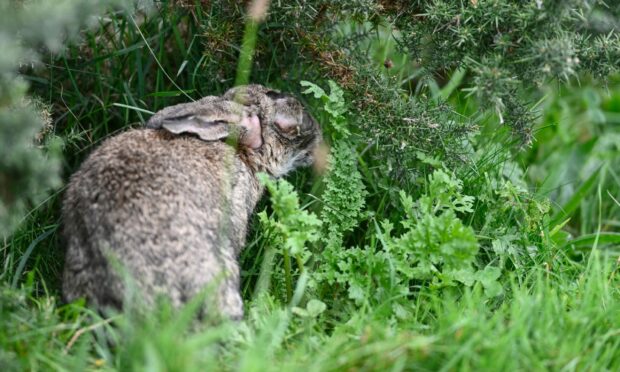
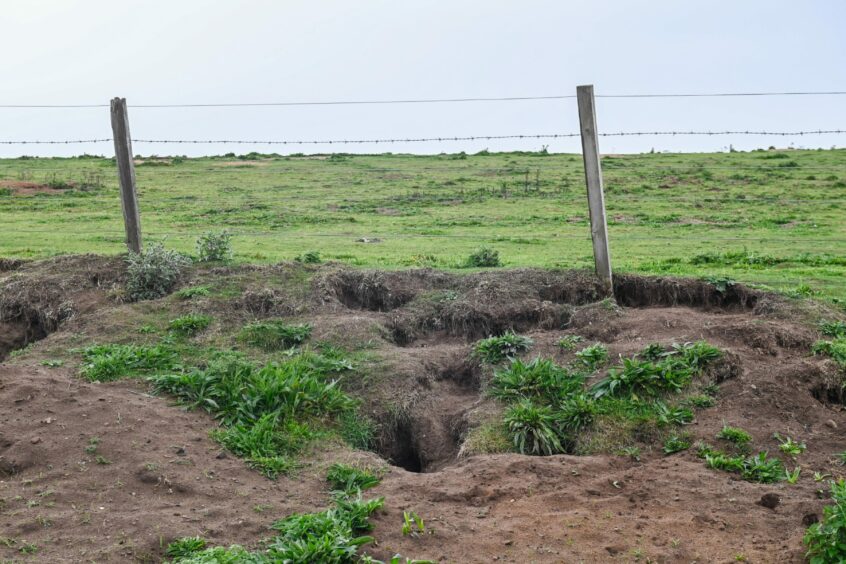
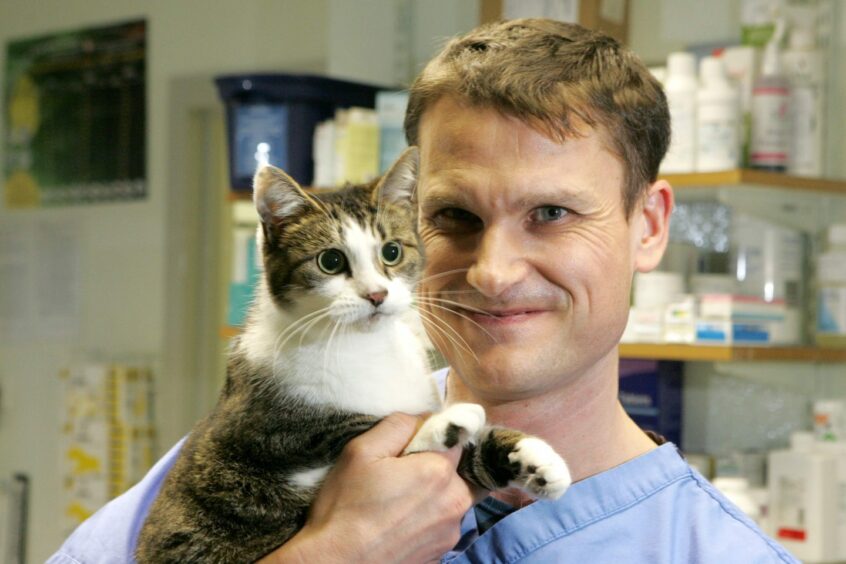
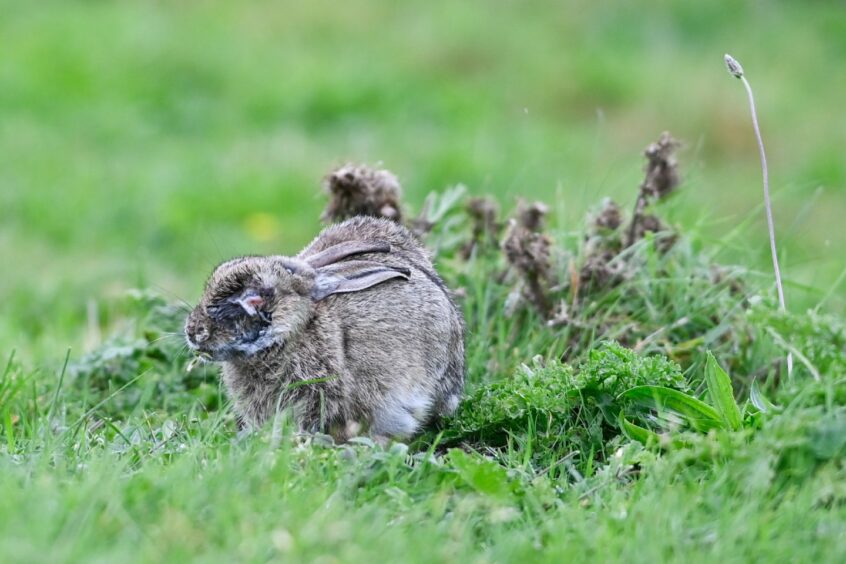

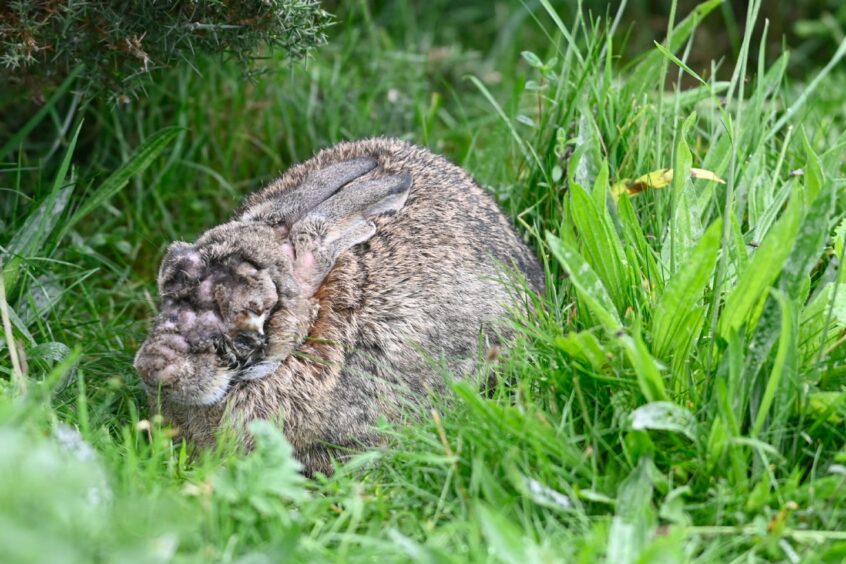
Conversation